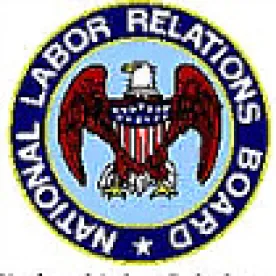With the recent news out of Washington that the Department of Labor has withdrawn Administrator’s Interpretation 2016-1 (its previous informal guidance on joint employment under the Fair Labor Standards Act (“FLSA”)), and with the National Labor Relations Board pulling back the broad joint employer standard set in the 2015 Browning-Ferris Industries of California, Inc. case, many are under the impression that the joint employer storm has passed.
While these are certainly welcome developments, franchisors should be careful not to dismiss the threat of joint employer liability too quickly. This is particularly true if you have outlets located in Maryland, Virginia, North Carolina, South Carolina, and/or West Virginia.
On January 8, 2018 the U.S. Supreme Court rejected DirecTV’s certiorari petition to review a ruling handed down in January 2017 by the Fourth Circuit Court of Appeals (the federal appellate court for Maryland, Virginia, North Carolina, South Carolina and West Virginia).
The case, DirecTV LLC v. Marlon Hall was decided in tandem with another case, Salinas v. Commercial Interiors, Inc. Both cases involved the FLSA, the Act that governs things such as minimum wage and overtime (hotbeds for litigation).
The Court determined that joint employment exists when two or more persons or entities are not “completely disassociated” with respect to a worker such that they “share, agree to allocate responsibility for or otherwise codetermine – formally or informally, directly or indirectly, – the essential terms and conditions of a worker’s employment…” (emphasis added). Among the factors to be considered when making this determination is “whether, formally or as a matter of practice, the putative joint employers jointly determine, share or allocate the power to direct, control or supervise the worker, whether by direct or indirect means…” (emphasis added).
By refusing to grant certiorari, the Supreme Court is essentially allowing the Fourth Circuit’s test to prevail as precedent in the jurisdictions where it governs. While the joint employer standard set by the National Labor Relations Board was alarming for franchising, it only covered claims under the National Labor Relations Act (“NLRA”) and (unless your system is one that has a unionized workforce) chances are that your system is likely at greater risk of a suit under the FLSA than the NLRA.
Therefore, even if you do not currently have an outlet in one of the states mentioned above, you should still be diligent in your practices, particularly if you plan to expand into one of those states. This includes carefully reviewing your training programs, your policies, and all documentation provided to franchisees, including your Operations Manual and any form documents.
Additionally, you should avoid becoming involved in any human resources disputes or otherwise communicating directly with employees of your franchisees. When in doubt, err on the side of caution and seek counsel to ensure you are keeping your brand out of the headlines for the wrong reasons.



 />i
/>i

